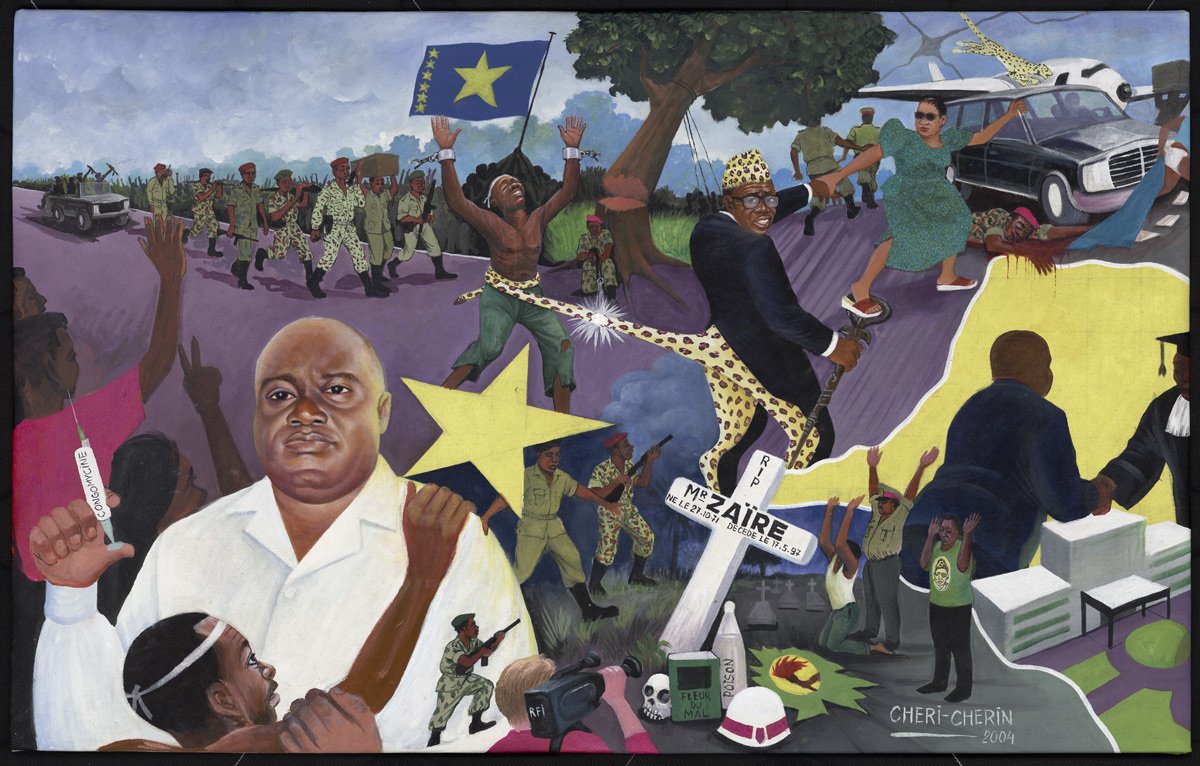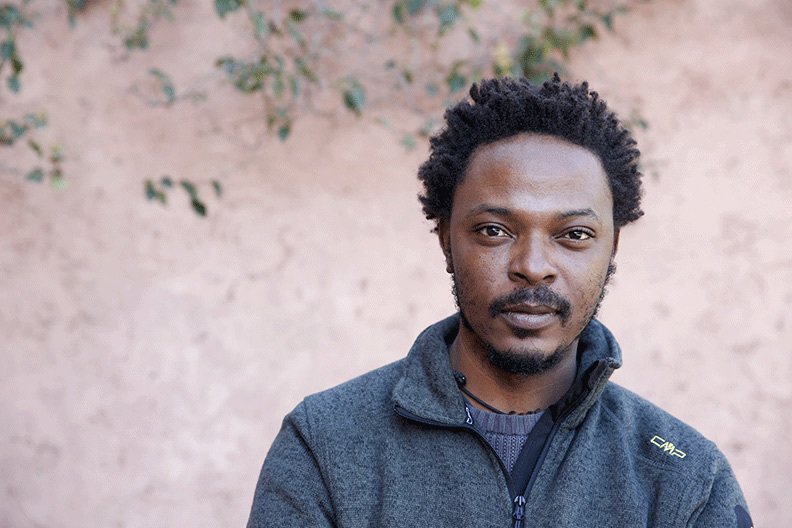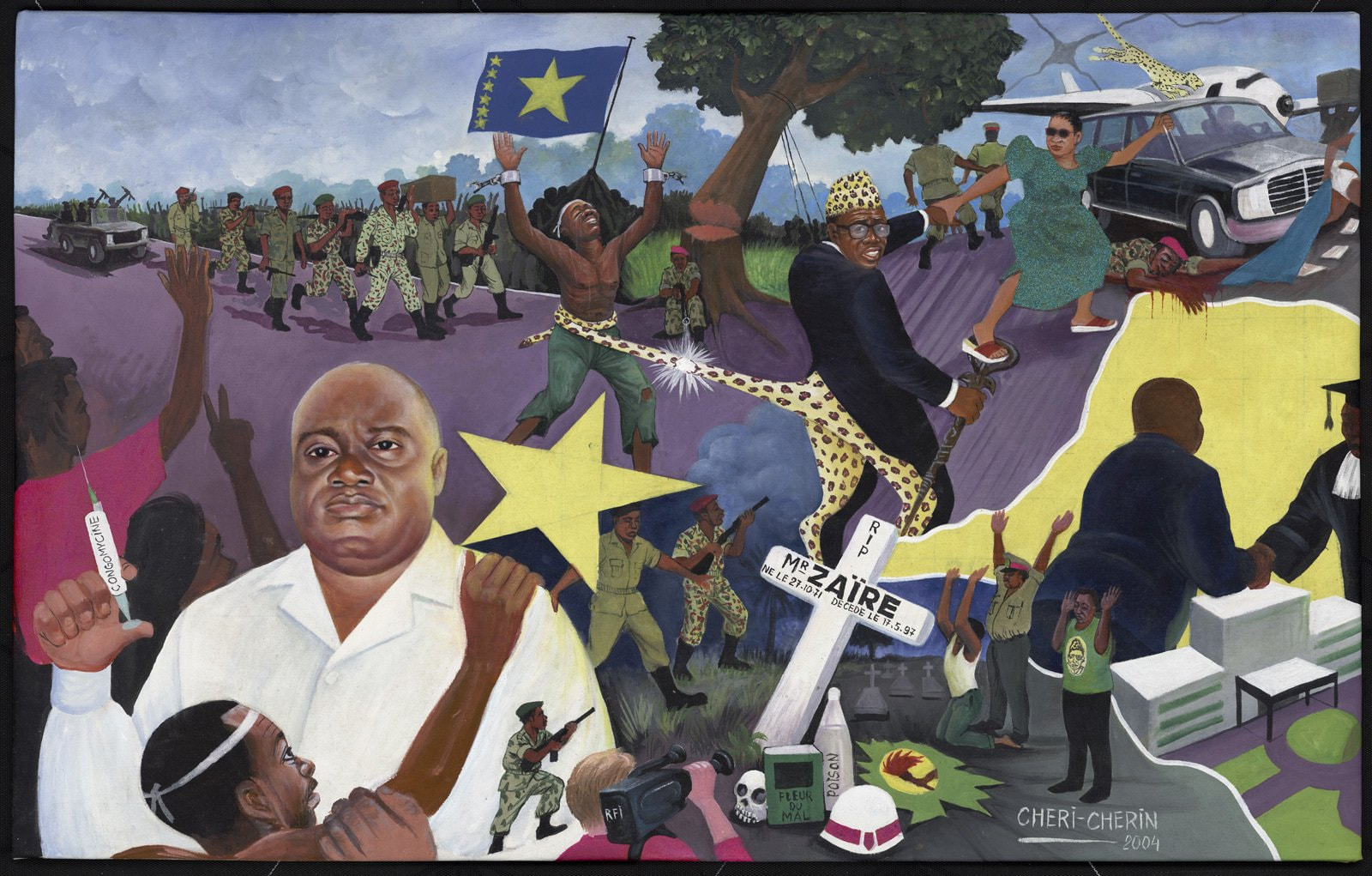Sammy Baloji: The Influence of the Cold War in Congo
Artist Sammy Baloji’s research explores the Belgian Congo's transition to the Democratic Republic of the Congo, the role of Patrice Lumumba in the country's independence, and the subsequent dictatorship of Mobutu Sese Seko.
Baloji is examining the role the Cold War played in Congo, although his research is not limited to politics. His main interest is Congo’s culture and way of life during the period of Zairianization, the official state ideology of the Mobutu regime.

Chéri Chérin (b. 1955)
Flight of Mobutu. Kinshasa, DRC. Lubumbashi, Haut-Katanga, DRC, 2004
Oil on canvas
Royal Museum for Central Africa, Tervuren
Taking place in Brussels, Kinshasa, Lisbon, and Moscow, Baloji’s research includes interviews with international specialists such as a Congolese historian and writer Kivilu Sabakinu, Belgian historian and cultural anthropologist Jean Omasombo, and Russian filmmaker and Soviet cinema expert Alexander Markov, as well as a visit to the Portuguese National Archive of Torre do Tombo.
In his project Baloji tracks a historical parallel between the 1970s Zairianization movement —which promoted the return to African place and family names—and contemporaneous political developments in Eastern Europe. In particular, the artist is making comparisons between cultural and agrarian revolutions, and the imposition of an authoritarian, one-party regime in both Eastern Europe and the Democratic Republic of Congo. Baloji also aims to examine the influence of communism on Congolese culture and analyze the development of local artistic practices during the three-decade period of Mobutu's regime.
Started in July 2016, the research project will last for two years and result in an artist’s book that will incorporate photography, historical video footage, news articles, excerpts from political speeches (c. 1920–1990), and other archival materials.

Sammy Baloji
© Rolex/Tomas Bertelsen
Sammy Baloji was born in 1978 in Lubumbashi, Democratic Republic of Congo. He lives and works between Lubumbashi and Brussels. In his practice he uses photography, film, montage, and archives to confront the complex relationship between his native country’s colonial past and its political present.
